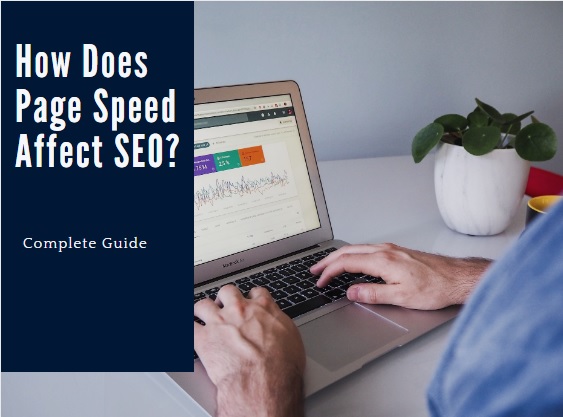How Does Page Speed Affect SEO?
When it comes to improving your site’s SEO, there’s more than one factor to consider, but a key element that often gets overlooked or deprioritized is page speed. There’s no point putting your efforts into keyword research or growing a high-quality blog page if users are faced with slow loading times every time they click onto your site.
And then there’s the simple truth that Google doesn’t appreciate slow websites. If you fall foul of Google, you’ll struggle to get anywhere online. To help you make good decisions, here’s what you need to know about page speed and how it affects SEO.

How Does Page Speed Affect SEO
Why is page speed important for good SEO?
Page speed is a determining factor in Google’s algorithm, and that’s because visitors are turned away by slow sites. Because fast websites provide much better user experiences, Google will rank them more favorably, leading to superior traffic volume and greater conversions (or at least conversion opportunities).
The good news here is that the biggest elements impacting the speed of your website are technical and foundational. If you can make good choices when you’re in the process of launching your site, you’ll greatly reduce your likelihood of needing to deal with page speed issues. The simplest solution is to use a convenient platform like Cloudways to make cloud hosting and deployment as easy as clicking a few buttons.
Even with great hosting, though, it’s important to be aware that page speed could become an issue down the line. Here’s why it’s so important:
Slow pages increase bounce rates
A visitor to your website is seen to have bounced if they visit only one page and do nothing before leaving, so your bounce rate gauges how commonly this occurs. A high bounce rate isn’t necessarily an indication of poor performance, admittedly, as it may stem from an informational page doing its job extremely well — but given that website owners generally need engagement to succeed, it’s usually cause for concern.
So why does a slow page lead to a higher bounce rate? It’s simple enough: a visitor will only give you a small amount of time to impress them, and the more of that time is spent waiting for things to load, the less time your loaded content will have to work its magic. Additionally, the longer someone spends waiting for a page to load, the greater their expectations will be. Make your website optimally speedy and you’ll give yourself the best shot at success.
Fast loading times are necessary for strong UX
Search engines place a high value on user experience. When you click a link provided by Google, the company wants you to find what you’re looking for as quickly and easily as possible. Google’s position of dominance may seem unassailable, but — per Statista — it’s not static. If it began consistently missing the mark, it could one day be supplanted by a competitor.
If your website is slow, of course, users will find it harder to find what they’re looking for. This will impact their actions, sending negative signals to Google via on-page metrics. With it clear that your website isn’t providing the required value, you’ll tumble down the rankings. Due to this, you need to ensure that your website is as easy and swift to navigate as possible, so cutting back on load times is a mission-critical concern.
Inadequate page speed can affect Google’s crawl
When you create a new page, Google will crawl it to understand what it’s about and use this information to index it. However, the crawler doesn’t have an infinite amount of time to scan each page, so if your site is suffering from slow loading times then the crawler may end up indexing incomplete versions of your biggest pages.
A page speed tool can help diagnose the
underlying issues of your web pages, allowing you to take appropriate action
(you may need to reduce your image file sizes, for instance). In most cases,
though (as noted earlier), it’s your technical foundation holding you back:
investing in superior web hosting will always
help, allowing even an averagely-optimized site to perform well, though it
may be more cost-effective to make page-level tweaks before committing a
substantial sum to next-level bandwidth provision.












No comments
Note: Only a member of this blog may post a comment.